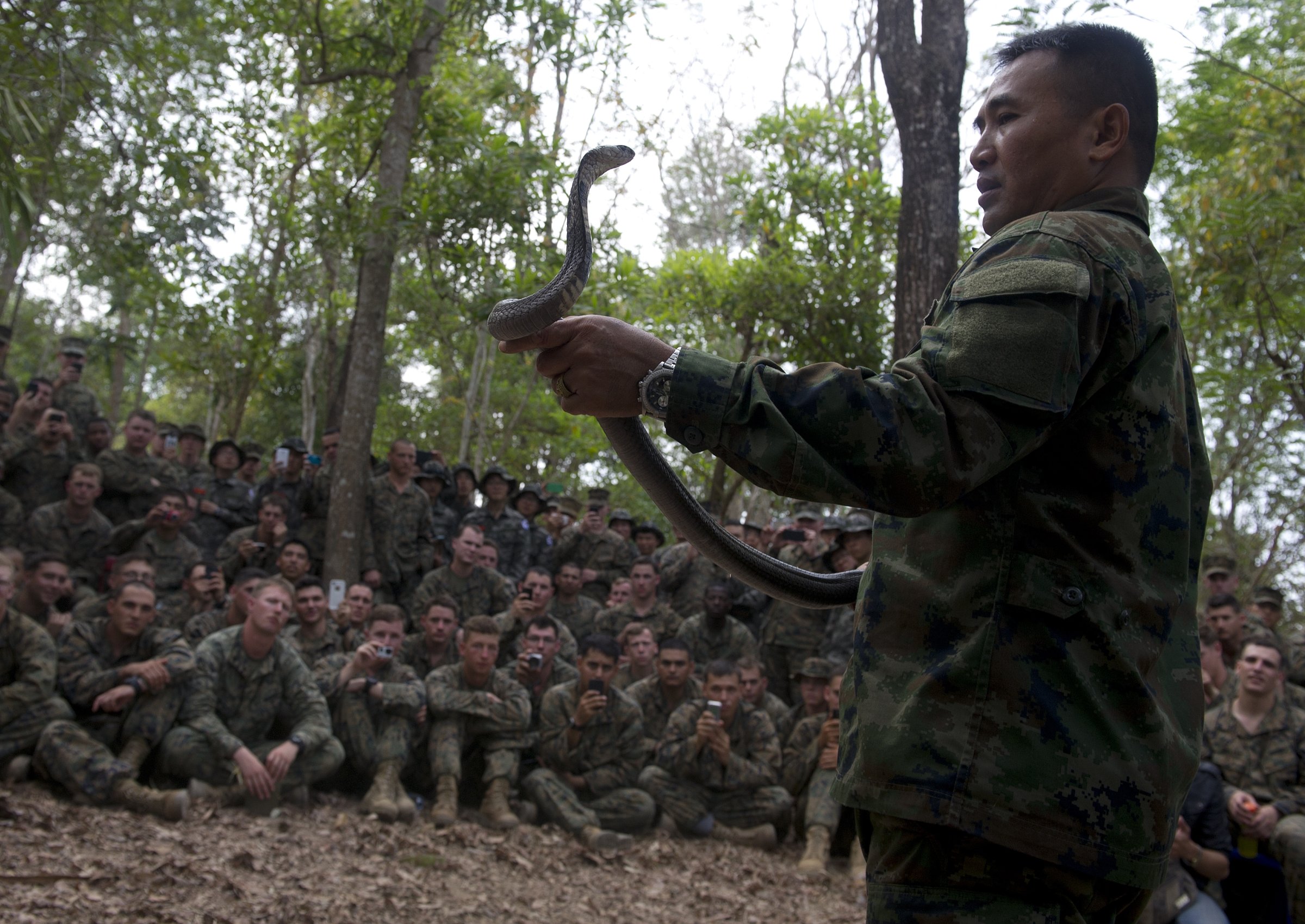
Thailand has been uninvited from the Rim of the Pacific Exercise (RIMPAC) in Hawaii — the world’s largest international maritime-warfare exercise — this week, in response to spiraling human-rights abuses in the wake of last month’s military coup.
The ban only affects the two or three Thai military observers slated to attend the exercise, nonetheless, in diplomatic terms the snub — to America’s oldest treaty partner in Asia — is a very pointed one.
“We take very seriously the whole human-rights aspect to this coup in Thailand,” U.S. Ambassador to Thailand Kristie Kenney tells TIME. “One of the things our government has done is look at our military engagements.”
Washington has already blocked $4.7 million in security-related aid to Thailand, accounting for roughly half its total annual assistance. But more significantly, the U.S. has made it clear that significant progress toward elections must be seen if next year’s high-profile Cobra Gold exercises are to go ahead.
Beginning as a bilateral U.S.-Thai exercise in 1982, Cobra Gold has become the largest military exercise in the Asia-Pacific region. It is held in Thailand annually and involved almost 30 regional players last year. However, 2015’s Cobra Gold is “under review,” says Kenney, and “will be a tough call at very senior levels in Washington.”
The cancellation of Cobra Gold would be hugely embarrassing for Thai army chief Prayuth Chan-ocha, who on May 22 launched the Southeast Asian nation’s 12th military coup since the end of absolute monarchical rule in 1932. Martial law has been imposed, the constitution suspended, with academics, politicians and activists arbitrarily detained.
“One of our great concerns right now is that these detentions continue — the restrictions on freedom of expression, the martial-law restrictions on freedom of assembly.” says Kenney. “So it is really troubling, [as is] the fact that there’s not clear accountability for who is detained and who is released.”
General Prayuth has insisted that the military will remain in charge for at least a year while urgent “reforms” are enacted. A budget and a list of urgent infrastructure projects are being drawn up, while a draconian “clean up” of everything from petty crime to aggressive illegal taxi operators that target tourists (the so-called taxi mafia) appears to be on the cards.
Washington, however, wants a civilian government in power as soon as possible. “Our focus at this point is encouraging the current governing council of Thailand to move power into civilian hands and stop the restrictive measures,” Kenney says. “We want to see Thailand back in a leadership position as a democracy in Asia.”
The crackdown on civil liberties has led to calls for greater international support from those aligned with the ousted government of former Prime Minister Yingluck Shinawatra and her divisive brother Thaksin.
Jakrapob Penkair, a founding member of the pro-Shinawatra Red Shirt movement and a former government minister now living in exile, has helped launch the anticoup Organization of Free Thais for Human Rights and Democracy, which he says is in discussions with five Western governments about how best to return democracy in Thailand.
“[The West] is more aware [than Asian nations] of the tricks and games that are being played in Thailand now,” he told a meeting at Foreign Correspondents’ Club in Hong Kong on Thursday. “We have to work from outside in, because no one in Thailand can move as they are being so repressed.”
On Thursday, the BBC published an interview with junta council member Lieut. General Chatchalerm Chalermsukh, who rejected Yellow Shirt leader Suthep Thaugsuban’s claims that military intervention had been planned since 2010.
He also said Thaksin was welcome to return to his homeland and fight a tax-evasion conviction linked to the sale of his telecom company during his tenure as Prime Minister.
Robert Amsterdam, a Canadian lawyer who represents the Red Shirts and formerly also Thaksin, said he would “relish” defending his erstwhile client “if it was in a rule-of-law court before an independent tribunal.”
Speaking alongside Jakrapob in Hong Kong, he said “The judges [during Thaksin’s 2007 in absentia conviction] were specifically appointed from a small group of people whose qualifications were based upon their antipathy to Thaksin,” adding that Thaksin “never had any independent review of the allegations.”
More Must-Reads From TIME
- The 100 Most Influential People of 2024
- The Revolution of Yulia Navalnaya
- 6 Compliments That Land Every Time
- What's the Deal With the Bitcoin Halving?
- If You're Dating Right Now , You're Brave: Column
- The AI That Could Heal a Divided Internet
- Fallout Is a Brilliant Model for the Future of Video Game Adaptations
- Want Weekly Recs on What to Watch, Read, and More? Sign Up for Worth Your Time
Write to Charlie Campbell at charlie.campbell@time.com